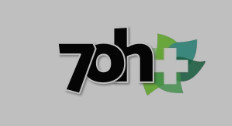views
7OHPlus vs Traditional Disinfectants – A Comparative Analysis
In an industry saturated with sprays, and cleaning agents, it's important to distinguish the innovative from the 7tabz 7OHPlus is rapidly becoming the disinfectant of choice for businesses and households alike. But how does it actually compare to traditional disinfectants like bleach, alcohol-based cleaners, or phenolic compounds? This article explores a detailed comparison between 7OHPlus and conventional alternatives.
1. Active Ingredients: Modern Chemistry vs. Old Standards
Traditional disinfectants such as bleach (sodium hypochlorite), phenols, and alcohol-based cleaners rely on legacy chemistry. While effective to an extent, these substances can be:
Harsh on surfaces
Toxic when inhaled
Flammable or corrosive
7OHPlus, in contrast, is based on advanced, non-alcohol-based quaternary ammonium compounds or other next-gen molecules designed for safer and longer-lasting performance. This means it can sanitize without damaging electronics, causing skin irritation, or producing harmful fumes.
2. Safety Profile: A Game-Changer in Disinfection
Traditional disinfectants often carry hazard warnings, especially bleach and alcohol, which are:
Irritating to the skin, eyes, and respiratory tract
Potentially toxic if ingested
Not safe for children or sensitive environments
7OHPlus, however, is:
Non-flammable
Safe for skin contact
Non-toxic and eco-friendly
Odorless or mildly scented for comfortable indoor use
This makes it ideal for homes, healthcare settings, schools, and public spaces.
3. Efficacy: Speed and Spectrum
While most conventional products offer fast disinfection, their range is often limited. For example:
Alcohol works well on bacteria and enveloped viruses but not as effectively on fungi or spores.
Bleach is strong but loses potency quickly and can't be used on all surfaces.
7OHPlus offers:
Broad-spectrum efficacy (bacteria, fungi, viruses—including non-enveloped types)
Fast kill times (usually within 30–60 seconds)
Residual action, meaning it continues to work on surfaces even after application (depending on formulation)
4. Surface Compatibility
One of the biggest complaints about traditional cleaners is surface damage—corroded metal, stained fabrics, degraded plastics, etc.
7OHPlus is:
Nn-corrosive
Safe for sensitive materials, including electronics, touch screens, wood, and painted surfaces
Residue-free, leaving no film or streaks
This makes it highly suited for environments that demand both cleanliness and preservation.
5. Environmental and Regulatory Factors
As regulatory bodies increasingly push for greener alternatives, many traditional disinfectants are facing scrutiny for:
Non-biodegradability
Harmful byproducts
Usafe disposal concerns
7OHPlus is formulated with biodegradable ingredients, ensuring:
Minimal environmental impact
Easy disposal
Compliance with green cleaning standards
Conlusion: A Modern Alternative for Modern Needs
While traditional disinfectants had their place in the past, modern needs demand safer, smarter, and more sustainable solutions. 7OHPlus answers that call. With its advanced formulation, superior safety, and versatile usage, it clearly outshines most conventional disinfectants.
Whether you're managing a healthcare facility, operating a business, or just safeguarding your home, switching to 7OHPlus is not just a choice—it's an upgrade.




Comments
0 comment